Shan Tang
A mechanistic-based data-driven approach to accelerate structural topology optimization through finite element convolutional neural network
Jun 25, 2021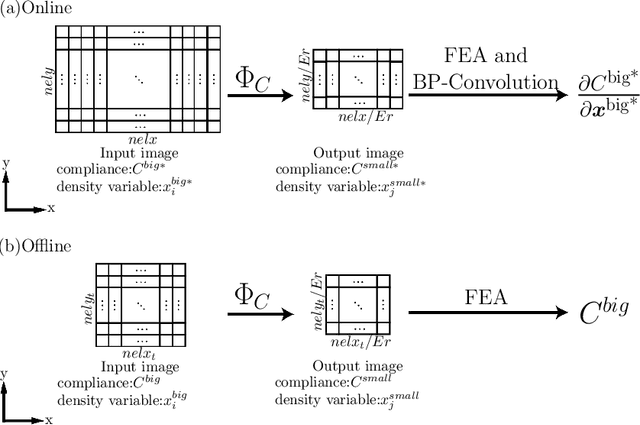
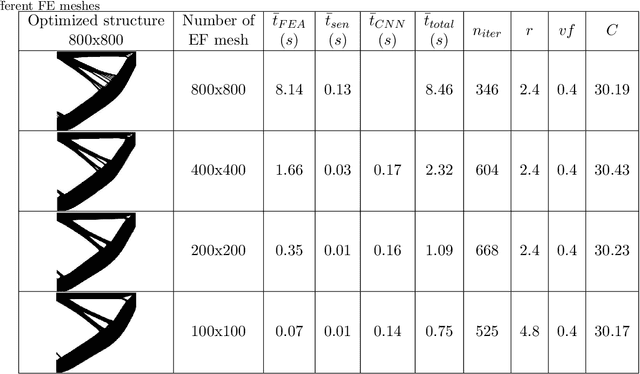
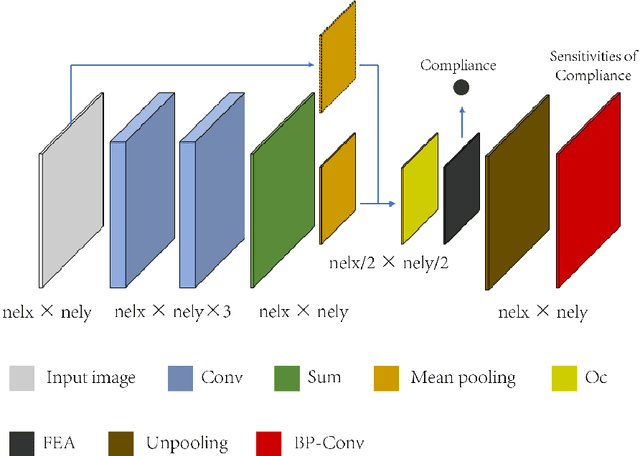
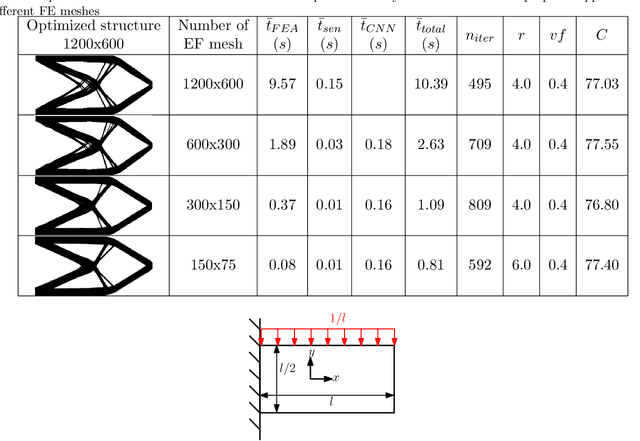
Abstract:In this paper, a mechanistic data-driven approach is proposed to accelerate structural topology optimization, employing an in-house developed finite element convolutional neural network (FE-CNN). Our approach can be divided into two stages: offline training, and online optimization. During offline training, a mapping function is built between high and low resolution representations of a given design domain. The mapping is expressed by a FE-CNN, which targets a common objective function value (e.g., structural compliance) across design domains of differing resolutions. During online optimization, an arbitrary design domain of high resolution is reduced to low resolution through the trained mapping function. The original high-resolution domain is thus designed by computations performed on only the low-resolution version, followed by an inverse mapping back to the high-resolution domain. Numerical examples demonstrate that this approach can accelerate optimization by up to an order of magnitude in computational time. Our proposed approach therefore shows great potential to overcome the curse-of-dimensionality incurred by density-based structural topology optimization. The limitation of our present approach is also discussed.
BENCHIP: Benchmarking Intelligence Processors
Nov 25, 2017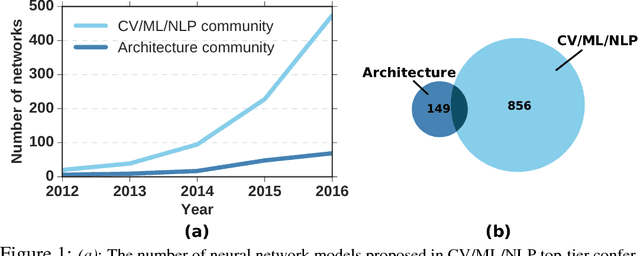
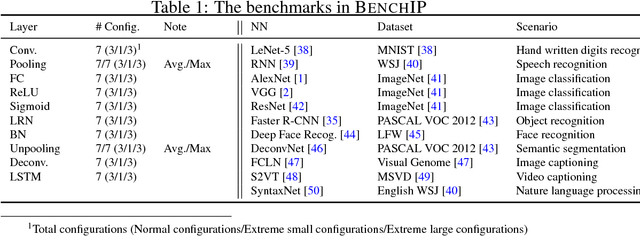
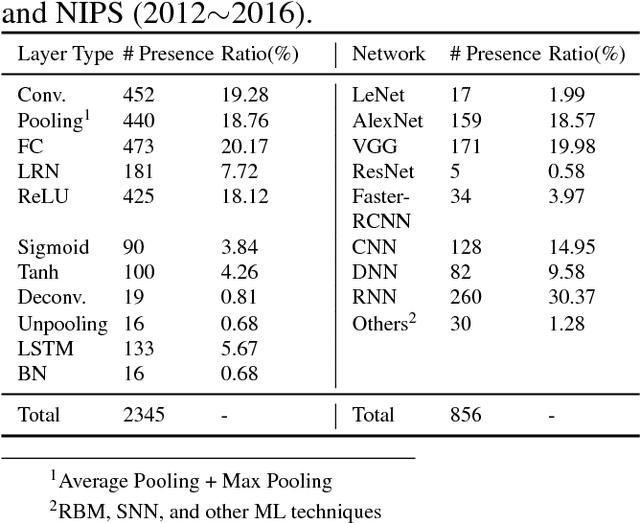
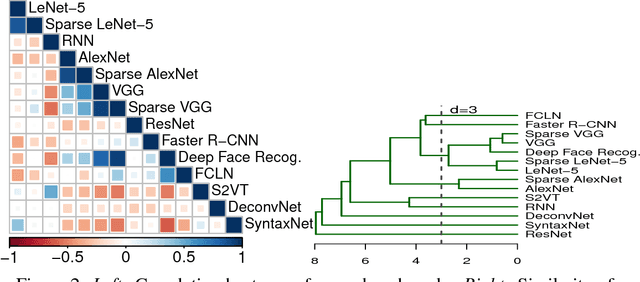
Abstract:The increasing attention on deep learning has tremendously spurred the design of intelligence processing hardware. The variety of emerging intelligence processors requires standard benchmarks for fair comparison and system optimization (in both software and hardware). However, existing benchmarks are unsuitable for benchmarking intelligence processors due to their non-diversity and nonrepresentativeness. Also, the lack of a standard benchmarking methodology further exacerbates this problem. In this paper, we propose BENCHIP, a benchmark suite and benchmarking methodology for intelligence processors. The benchmark suite in BENCHIP consists of two sets of benchmarks: microbenchmarks and macrobenchmarks. The microbenchmarks consist of single-layer networks. They are mainly designed for bottleneck analysis and system optimization. The macrobenchmarks contain state-of-the-art industrial networks, so as to offer a realistic comparison of different platforms. We also propose a standard benchmarking methodology built upon an industrial software stack and evaluation metrics that comprehensively reflect the various characteristics of the evaluated intelligence processors. BENCHIP is utilized for evaluating various hardware platforms, including CPUs, GPUs, and accelerators. BENCHIP will be open-sourced soon.
 Add to Chrome
Add to Chrome Add to Firefox
Add to Firefox Add to Edge
Add to Edge